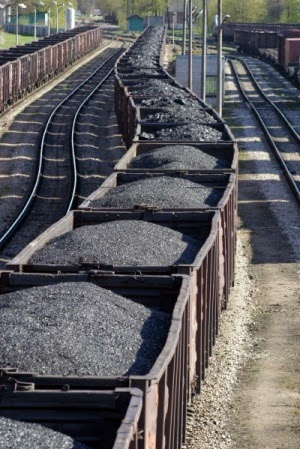My father told me and my brother on more than one occasion, “I wish I had’ve got you boys more when you were growing up. A lot of the guys at the mine were buying their kids new four-wheelers and things. They got bass boats and campers and took their families to the lake every weekend, but I just couldn’t bring myself to go into debt like that.” My brother and I always told him, we didn’t need any of that stuff. We just enjoyed being with him.
A lot of my parent’s thriftiness came from being raised in hard times and basic common sense. Even during the best years of coal mining, it wasn’t uncommon for the mine to shut down for a few months.1 Mom and dad knew it was better to put a little money back in case times got tough rather than spread themselves to thin. It also gave them the advantage of standing up to the company when they needed to go on strike to defend their pay, benefits, and safety. Without a massive amount of debt, they could weather the strikes without having to worry about losing the house, or the car.
Today it’s a bit different. You could always tell many of the older coal miners from the younger just by looking at the mine parking lot where I worked. The older coal miners drove beat-to-hell cars and pickup trucks, while many of the younger miners rolled up with $30,000+ pickups. The spending didn’t end there for these young men. They’d brag about their houses, sports cars, vacations, motorcycles, and expensive toys for their kids. I’d just shake my head. Meanwhile, I knew the mine superintendent was grinning ear to ear watching those young bucks roll in with all their debt. He knew he had them right where he wanted them.
I’d sometimes ask some of those young dudes if it wouldn’t be smarter to buy cheaper vehicles, smaller homes, and put a lot of the $50,000+ a year they were making back into savings. Their mantra was always the same, YOLO (You only live once). Further argument was futile.
I could never understand why so many of today’s coal miners failed to look beyond the immediate future—why they didn’t realize that being dependent upon one skill set and one industry was setting themselves up for failure. Then they complain and get scared when mines start shutting down, screaming at anti-environmentalist protests, “Coal is all we’ve got!”
From day one in the mine, I began paying double payments on the only debt I had, a 10-year-old used pickup truck I purchased for half the price of a new one. We inherited the old home place and spent six years using tax returns and 0% interest store credit to remodel the kitchen and bathroom, put a new roof on, install new plumbing, new doors and windows, remodel the kitchen and bathroom. Our car was a 10-year-old Subaru and when we decided to get a new car because it was leaking oil like a sieve, we at least got a small Corolla and kept the payments low. Not only that, we already had the money in the bank saved up to buy it outright, but with 0.0% interest they were offering, it didn’t make sense to deplete our savings in one purchase.
I did these things because I had remembered the times my dad had been laid off. I wanted first and foremost for my family to be prepared for the inevitable, to ensure my family would have what it needed if hard times came.
When the big “surprise” came that the coal market is taking a hit and mines are being shut down everywhere, who should really be blamed for the financial woes of coal miners across Appalachia? Should we blame the coal companies, the politicians, or the coal miners who overextended themselves? Personally, I think they’re all to blame.
Well, it’s happened and continues to happen. What’s worse is that no one seems to be the wiser. You can tell by how many Friends of Coal tags are out there on the roads and how many coal miners are quick to point fingers at environmentalists just like the coal companies want them to. They’ve bought into the “War on Coal” BS and keep voting for the same politicians who’ve kept Appalachian people poor and coal companies rich.
It’s hard to get folks to realize what is going on. I’ve tried. It’s even harder to get people to change their way of thinking. Something major has to happen for someone to change. You’d think layoffs and the market downturns created by natural gas would be major enough. Apparently not.
How long will it take to turn things around? I have no idea, but in the meantime I have to wonder how much more damage will be done to Appalachia and how many more generations will have to leave before everyone realizes the need to bring in different jobs. I just know the first step will be to stop propping up the coal industry as being the almighty saviors of Appalachia.
There are a lot of people with some amazing ideas out there. I think it’s time folks started listening to them.
- For instance, dad worked for a mine owned by Bethlehem Steel who used the coal for their steel production. One year, taconite ore shipments from Wisconsin couldn’t make it to the steel mills due to weather conditions on the Great Lakes, so they idled dad’s mine until they could get steel production rolling again. ↩︎

